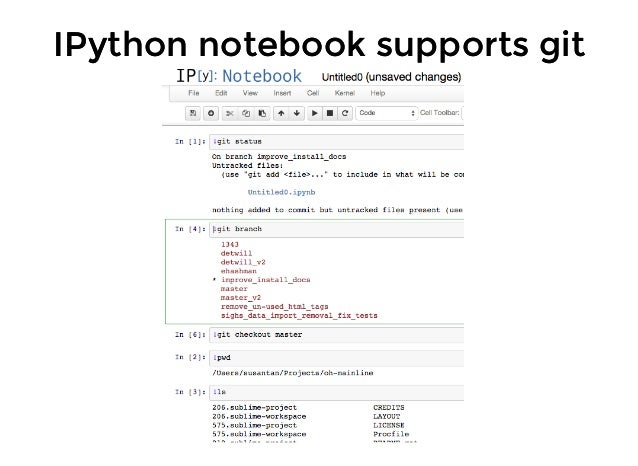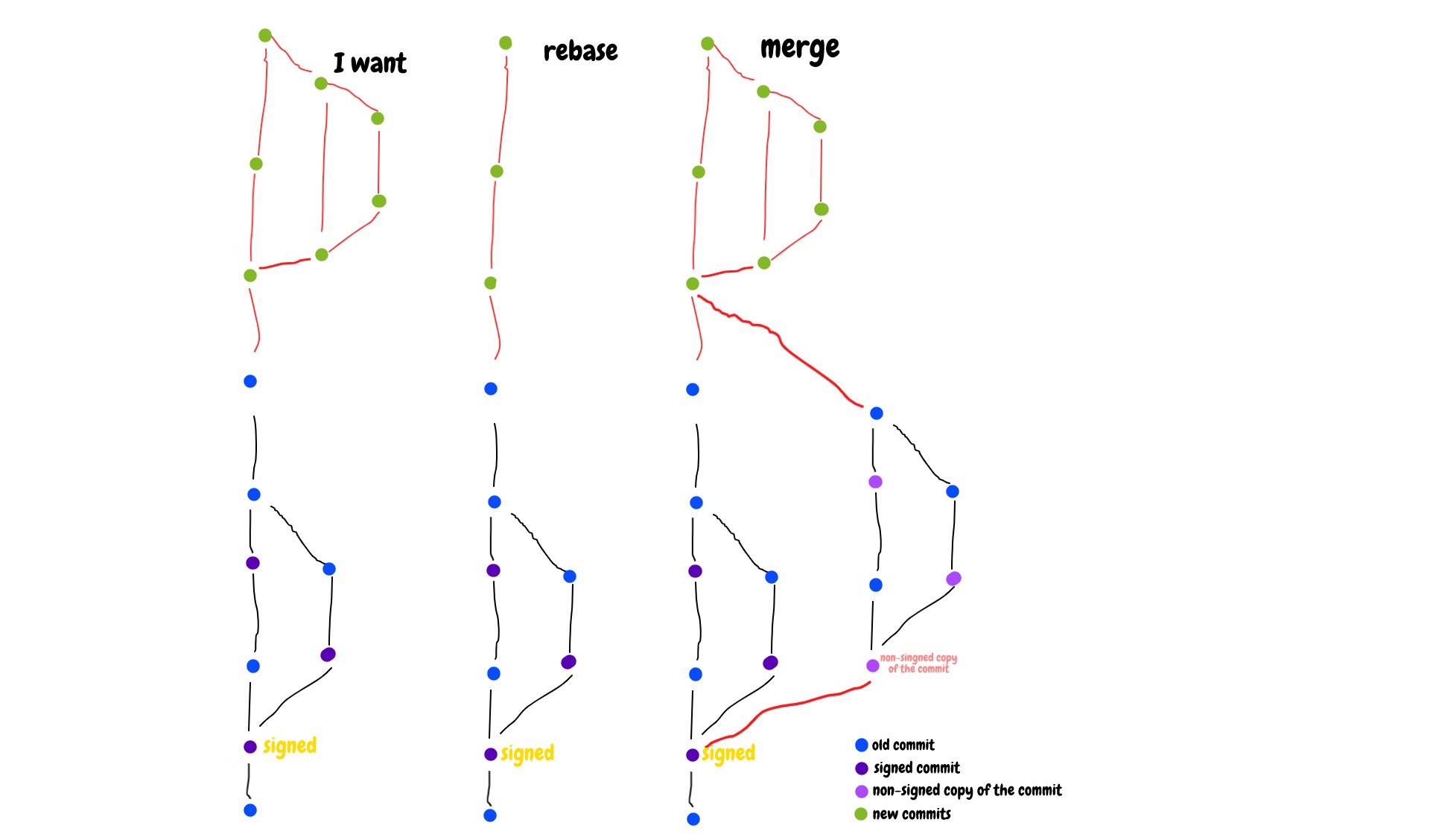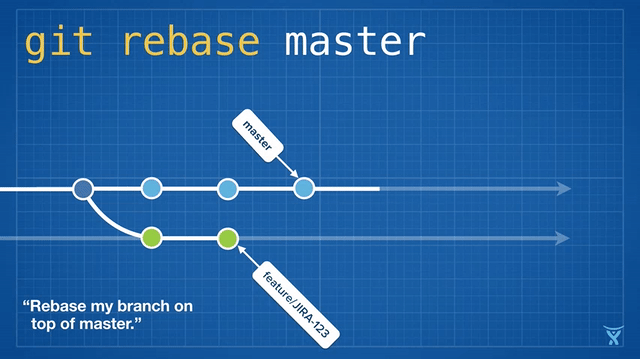

Another option is to bypass the commit that caused You will have to resolve any such merge failure and run git rebase -continue.

It is possible that a merge failure will prevent this process from being completely automatic.
#GIT REBASE UPSTREAM PATCH#
are omitted (i.e., a patch already accepted upstream with a different commit message or timestamp will be skipped).

Note that any commits in HEAD which introduce the same textual changes as a commit in The commits that were previously saved into the temporary area are then reapplied to the current branch, one by one, in order.

ORIG_HEAD is set to point at the tip of the branch This has the exact same effect as git reset -hard (or ). The current branch is reset to, or if the -onto option was supplied. 'fork_point'.HEAD, if -fork-point is active (see the description on -fork-point below) or by git log HEAD, if the -root option is specified. This is the same set of commits that would be shown by git log. If you are currently not onĪny branch or if the current branch does not have a configured upstream, the rebase will abort.Īll changes made by commits in the current branch but that are not in are saved to a temporary area. If is not specified, the upstream configured in branch.remote and rge options will be used (see git-config(1) for details) and the -fork-point option is assumed. Otherwise it remains on the current branch. If is specified, git rebase will perform an automatic git checkout before doing anything else. Git rebase -continue | -skip | -abort | -quit | -edit-todo In order for this to work you may need to reset your branches (or maybe re-clone your repos) to a "clean" state, where you haven't merged and/or pushed yet any of the changes on mybranch to a local or forked master.Package rebase git-rebase - Reapply commits on top of another base tip. When you are ready to publish your work to the forked repo master, the upstream master and the forked master will go out of sync, but as long as you've followed 1-4 you should be able to forever keep your changes on top.ĥ] local master $ git merge -ff-only mybranchĪnd then repeat 1-4 again as many times as necessary.Ī word of caution. Repeat 1-4 or just 3-4 as many times as necessary in your dev flow. However, when the changes are completely disjoint, as you outline in the question, you can indeed keep your set of changes on top by rebasing and fast-forwarding, when you merge or pull.Ġ] local master $ branch mybranch off master Overall it is inevitable for the master on both the forked and local repos to deviate from the upstream master, if they are is to incorporate the changes on the mybranch topic branch. The arrows indicate the directional flow of commits.Īnd given the above you've asked how do you implement your desired dev flow of keeping your changes always on top. After trying the above, I again tried git push origin mybranch This did not give any errors, but it has also not pushed anything to my remote fork. There is similar question on stackoverflow that suggested a slightly simpler method: git fetch upstream Note that origin is my forked repository and upstream is the original repositrory. Hint: See the 'Note about fast-forwards' in 'git push -help' for details. Hint: Updates were rejected because the tip of your current branch is behind ! mybranch -> mybranch (non-fast-forward) I attempted to push my rebased local branch to my forked branch: git push origin mybranch I rebased my local branch on my local master: git checkout mybranch git rebase master I pushed changes from my local master into my forked master: git push origin master I pulled changes from the upstream user into my local repo: git pull upstream master Note: The files changed by upstream are different from the files I have changed in my branch, so there should not be an conflicts. I do not want to merge with master because I have not finished developing my branch. Additionally, if I understand rebase correctly, I want to rebase my branch on that master.
#GIT REBASE UPSTREAM UPDATE#
I wish to update my master with those changes. The upstream user has commited changes to their master. I have created a new branch on my own forked repository and have commited some changes to it. I have forked that repository into my own account. A certain user on Github has a repository with single master branch.


 0 kommentar(er)
0 kommentar(er)
